Category: Uncategorized
Lessons from a career in occupational therapy feeding education and research
Published by Paula Rabaey, PhD, MPH, OTR/L on Apr 22, 2024
Paula Rabaey, PhD, MPH, OTR/L, has seen firsthand how research can improve patients’ lives worldwide over her 30 years in occupational therapy (OT). Dr. Rabaey, an associate professor at the University of Minnesota, has continued working with children throughout her academic career to maintain a direct connection to those who may benefit from her research.
Since her first occupational therapy position, when she was introduced to the role of OT in feeding children with cerebral palsy and other neurological developmental delays, mealtime participation as a major childhood occupation has been Dr. Rabaey’s passion. Working with families in her area and on her volunteer trips abroad has given Dr. Rabaey a direct connection to families’ feeding therapy needs. She also can see how educational experiences and academic research can profoundly impact service delivery.
How education and research in occupational therapy improves feeding therapy methods
An early example of how education informed her practice was evident after attending a multi-day continuing education course focused on strategies to foster feeding skill development. “The course was life-changing because it made me think about the multiple steps to eating, from getting the food on your plate to getting it to your mouth,” says Dr. Rabaey.One child born with a cleft palate and later diagnosed with autism spectrum disorder stands out in particular. At age two, the girl’s feeding difficulties were so profound that she would scream at the sight of her high chair. All of her medical feeding needs had been addressed, but she still refused to eat.
By the time I met with her, numerous therapies had failed to help, and the little girl was getting all of her nutrition from a gastrostomy-tube. Her family was wary of therapy but desperate for a solution that could offer a more typical eating experience.
Dr. Rabaey worked with the entire family using the skills she learned from her feeding coursework. For nearly a year, they worked through the toddler’s tactile aversions and slowly introduced food and witnessed remarkable progress. “By the time I discharged her, she was eating pretty much everything by mouth. She started attending school and was thriving,” Dr. Rabaey said.
It was an important early lesson on the power of working with the whole family while advocating for the child’s unique needs.
Researching abroad to benefit children with pediatric feeding disorder worldwide
Much of Dr. Rabaey’s research comes from her OT work abroad with SPOON. She’s dedicated to using a mixed methods approach of qualitative and quantitative research methodologies to understand the complexity of pediatric feeding disorder and its impact on children and families.With SPOON, she volunteers as a feeding technical expert and helped develop an assessment tool for caregiver feeding practices in orphanages. The tool offers solutions for positioning, cup and spoon use, modification of food textures and responsive feeding practices for caregivers who feed children with disabilities. She continues researching the tool’s efficacy and usability and has presented the work in Mongolia, Kazakhstan, China and Russia.
Dr. Rabaey also has helped develop a training of trainers (TOT) curriculum for community health workers working with families with a child with a disability in Zambia and is assisting SPOON with piloting a unique and low-cost feeding chair for use in low and middle-income countries. This work has informed how she teaches her students to practice with multicultural families in the U.S. today. There are so many cultural elements to eating; “You have to be empathetic to consider every family’s way of doing things,” she says.
How research informs our work at Feeding Matters
As the research pillar at Feeding Matters, Dr. Rabaey leads our research initiatives as well as how research informs our evidence-based practice recommendations. Research was key to establishing an International Classification of Diseases (ICD-10) code for PFD. The code was made official in October 2021 after the council published a consensus paper, advocated for a diagnostic code within the ICD and disseminated the information to the healthcare community.
Since then, Dr. Rabaey collaborated with Kate Barlow, OTD, OTR/L, IMH-E on a mixed-method study through a Feeding Matters grant to identify what assessment tools therapists are using to diagnose PFD. “You don’t pull out a standardized kit from the shelf to evaluate feeding,” she says.
That research was published in 2023, showing that OTs and speech pathologists use a mix of ways to evaluate PFD, and not many of the assessments are standardized. The tools don’t necessarily fit the four domains of pediatric feeding disorder: medical, nutrition, feeding skill and psychosocial. “What’s clear is we need to have a broader, more formalized way to assess the complexity of PFD,” says Dr. Rabaey.
While there’s more work to be done to improve feeding therapy practices through research, Dr. Rabaey is proud to see how far feeding therapy has come since she began as an OT.
“There is a great need for evidence and evidence-based practice. While it’s slow going, I think we’re making important strides.”
Paula Rabaey is the research pillar at Feeding Matters and a new fellow for AOTA. She’s on the Medical Advisory Board and a feeding technical expert for Spoon Foundation. Many of her numerous academic publications focus on her international research.
Calm Confidence
Published by Courtney Bliss, MS, RDN on Sep 28, 2023
Hi! I’m Courtney Bliss, a pediatric dietitian and a Feeding Matters board member. Last week I was able to participate as a board liaison in Feeding Matters’ PFD Alliance executive council meeting where we discussed all of the amazing work of our staff and volunteers. I’m very excited for you all to see the work we have underway and our next International Pediatric Feeding Disorder Conference (Save the dates now! April 24 – 26, 2024).
In our meeting, we spent time discussing the recent meeting between the avoidant restrictive food intake disorder (ARFID)/eating disorder (ED) world and our pediatric feeding disorder (PFD) crew.
In my day to day life, I work as a pediatric dietitian running my own practice supporting families from birth to 21 years old. I have the privilege of supporting individuals with a wide range of conditions, including ARFID, EDs, and PFD. I am lucky to be able to help families with all of these conditions – ARFID, EDs, and PFD. Something that stands out to me working with all three populations is the different approach many providers have when it comes to advocacy.
In my experience and opinion, the PFD world embodies a certain scrappy spirit. When you have to fight for validity for years (especially prior to the official PFD diagnosis in 2019) – there is an unparalleled intensity as we have had to justify our space in the world, to be seen and heard. When you step into the ED world (where ARFID mostly lives) there is a completely different energy. They aren’t trying to prove themselves. The ED provider community is decades into their advocacy journey, and they approach collaboration and advocacy with a more calm confidence. For me, this stark contrast helps me realize how the crossover and confusion of ARFID and PFD continues. Both worlds haven’t been talking with one another.
That calm confidence is something I look forward to our community stepping into for this next season. I think of it as a collective deep breath, a pause before we push again. The consensus paper published in 2019, the diagnosis code(s) released in 2021, our numerous research projects, and the recent consensus meeting with the ED population all underscore one undeniable truth: we are here, and our work matters and profoundly impacts children and families. As we continue to increase awareness in our communities, let’s approach those with a zen-like confidence that comes from being seen. Your work is valid. Your family’s experience is valid.
This will certainly help us reach more families in need of support, inspire more providers to get involved, and accomplish our mission of creating a better system of care for children with PFD.
Thank you for your unwavering dedication to Feeding Matters and for being an integral part of our journey. Together, we are making a tangible difference in the lives of countless children and their families.
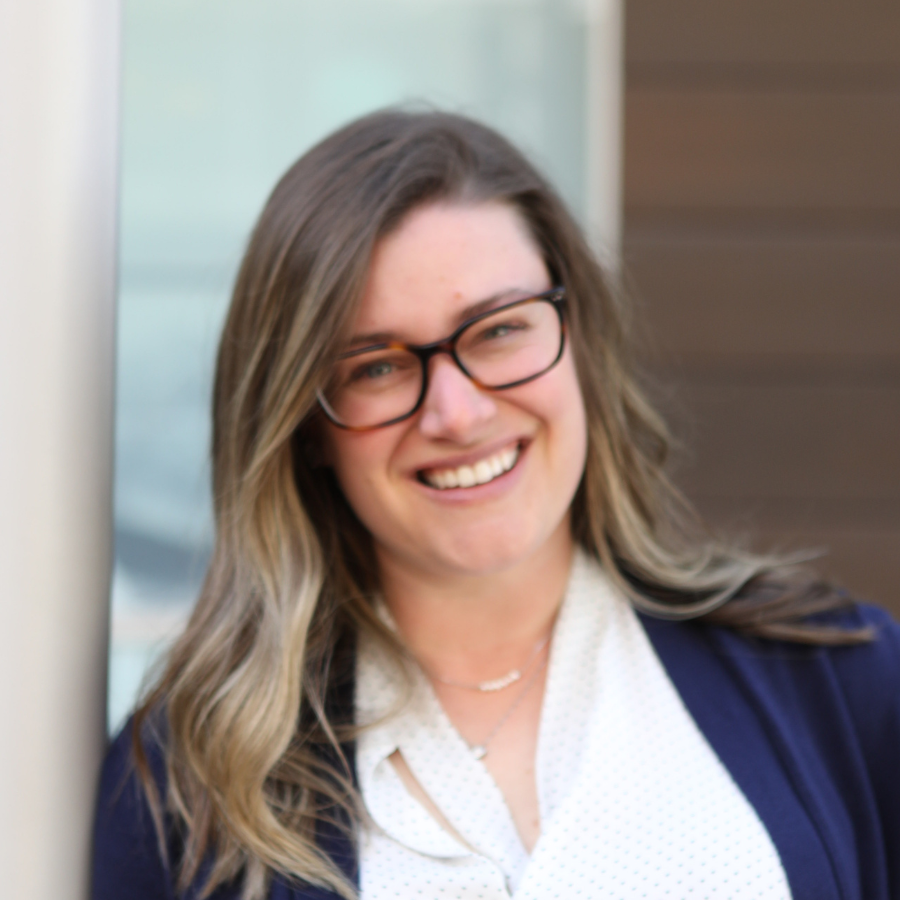 Best,
Best,
Courtney Bliss, MS, RDN
Founder and CEO – Feeding Bliss
Feeding Matters Board Vice-Chair
Bravely adventuring out with PFD this summer
Published by Feeding Matters on Jun 23, 2023
Parents offer 7 tips for navigating summer travel with pediatric feeding disorder
Summer travel with children is always an adventure. Having a child with pediatric feeding disorder (PFD) makes traveling for leisure or medical reasons more complicated. Planning and adhering to advice from seasoned families of children with PFD can help smooth out any bumps in the road.
Julie Boos of Kansas City navigated PFD with her son, Landon, for the first eight years of his life. Landon suffered from respiratory syncytial virus (RSV) at eight days old and underwent respiratory failure. That led to dysphagia and other eating and breathing issues.
The family’s lives revolved around physician and therapy visits. Just visiting the hospital took foresight, perfect timing and a car bottle warmer.
But, the Boos were determined to visit Disney World. They had planned to go when their older daughter was three, but they delayed the trip when Julie was pregnant and told not to travel. Their daughter was already spending most of her time outside school tagging along on medical visits, so the trip felt essential.
They delayed the adventure until Landon was just under three and still qualified for a free ticket. Julie planned every detail down to the minute. She requested a free refrigerator in the room, citing medical issues. When they arrived, she ordered groceries of Landon’s few foods to the room. And she studied the Disney restaurant menus to find those who might serve elbow pasta with butter. She mapped out the day so they’d end up at the right restaurants at the right time.
Anyone with a child who has PFD can relate to the challenges the Boos faced, along with the sheer will to overcome it to offer their kids an experience others consider “normal.”

Tips to ease traveling with PFD
We asked parents in our Feeding Matters Power of Two Facebook group for their tips on traveling with PFD. Whether it’s a day’s outing at the pool or a week at Disney, here are seven tips to make your family fun this summer easier.
Pack feeding essentials in your carry-on
If your child has a g-tube, specific bottles or any feeding supplies, bring them in your carry-on and have a backup. Andrea Wallace says she always travels with a backup button and extra supplies for her child’s feeding tube. That way, she’s always prepared when flying if the checked bags get lost or delayed.
Use a pump backpack
Having a pump backpack has been essential for Jackie Moore’s daughter. They use it for night feeds, and it also makes traveling easier. The bag has space for ice packs to keep the formula cold for multiple feedings. Moore suggests this Feeding tube backpack.
Try a travel booster diaper bag
With so many feeding supplies in addition to all the other kids’ travel needs, any way to consolidate travel gear makes trips easier. Moore swapped out her diaper bag with a travel booster that has storage in it. “My daughter is very particular about what she will sit in because of sensory issues, and she loves this booster. We downsized much of the stuff in her diaper bag and attached a cold lunch bag to the strap,” she says. This is the travel booster diaper bag Moore uses.

Get a travel mini fridge
An AC and DC-powered mini fridge for travel can be a lifesaver in the car, according to Devon Steele. It guarantees you can refrigerate formula and purees. It has dual power sources that can connect to your car or to a wall outlet. “Just make sure your hotels have elevators, or you have help getting it upstairs,” she says. View the BougeRV car fridge recommended by Steele.
Lean on food deliveries or family and friends
Most kids are tired and cranky when they finally arrive at a travel destination. Having food delivered beforehand or asking your hosts to get your child’s favorite foods can make for an easier start to the vacation, says Erin Avilez.
Document what works
With so much to plan, it’s easy to forget something on your next trip. Julie Boos recommends writing down what worked (and what didn’t). You can even have a travel bag prepared that you can use for every trip. This is especially helpful for those who have to travel for frequent medical trips.
Have a backup plan
Despite all her advanced planning, Julie Boos and family got stuck in the Atlanta airport when their plane was canceled. If you know your child won’t eat anything from a food court, make sure you have food prepared just in case you don’t make it home when you expect.
Happy travels!
.Have tips of your own? We’d love to hear from you. Email programs@feedingmatters.org.
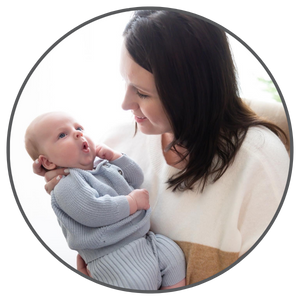
Power in Pause, Power in Reflection
Published by Jaclyn Pederson, MHI on Feb 22, 2023
Dear Friends of Feeding Matters,
I am so pleased to be back after a wonderful (and messy and loud!) maternity leave. I return ready to fiercely advocate for children with PFD, their families, and the professionals who treat them.
A lesson that has helped me recently in coming back after maternity leave is finding power in the pause. Much of what I do here at Feeding Matters involves thinking, setting strategy, and empowering the team. We have goals that will take 15 years to accomplish and some that will take three months. It can be easy to get pulled into one of the many areas of the PFD system of care that need attention and admittedly, it is sometimes hard not to react. But I’m learning there is power in pause and power in reflection. This space allows me and the Feeding Matters team to stay focused on strategy and the areas that will make the largest impact.
With this focus on our strategy, I have a few general aims that I hope to achieve for Feeding Matters and our internal team:
- Trauma Informed, Healing Organization: While I do believe most of our programs are trauma-informed, we are never done learning and need to be constantly evolving and growing. I want to ensure that we are trauma informed in all of our programming and continue to grow as a healing organization aware of trauma and its impact to an individual and a system.
- More Content: We are working to bring you more educational and awareness content that supports the needs of parents, professionals, and caregivers. This includes webinars, blogs, articles, and more.
- A Greater Movement for PFD: As we continue to build awareness for pediatric feeding disorder, we are creating a movement to ensure children are identified early and have access to the support and treatment that they need. This year, that movement will get even stronger. To start, we will have the biggest PFD Awareness Month (May) yet!
- A united community: Often, Feeding Matters has served as a neutral place for all perspectives to exist and ideas to be shared and discussed. We aim to continue this effort and take great pride in this responsibility. But as the world of feeding continues to get more complex, this task becomes even more difficult. That is why we remain dedicated to listening to our community, working toward consensus, advancing research, and innovation in an ever-evolving field.
For myself, and what I hope to bring to my team, is to continue working on living and breathing our values daily. Our team values are collaboration, innovation, and inclusion. We work to grow each day as leaders serving our community so that we can achieve our vision of creating a world where children with PFD will thrive. To do this, we will ensure we always make time for and find power in the pause.
Happy to be back,
Jaclyn

Jaclyn Pederson, MHI
Feeding Matters CEO
The Right Thing to Do
Published by Richard J Noel, MD, PhD on Jan 23, 2023
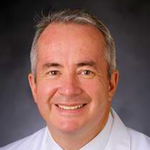 Happy New Year! This month we bring you a message from Feeding Matters‘ Volunteer Medical Director, Richard J. Noel, MD, PhD.
Happy New Year! This month we bring you a message from Feeding Matters‘ Volunteer Medical Director, Richard J. Noel, MD, PhD.
As we begin 2023 and continue to establish some normalcy after a challenging couple of years, I would like to reflect on a question that I am asked now and then: “Why, in your limited free time, do you choose to work with Feeding Matters?”
The simple answer is that it is the right thing to do. While it sounds like a too-simple, flippant response, I have sound reasoning with which I form this opinion.
To begin with, this is one of the few organizations I know that is one hundred percent about children with a chronic condition. While Feeding Matters addresses the needs of families and providers, they only do so because it aligns with the needs of children with pediatric feeding disorder (PFD). You would think that this was typical for the healthcare advocacy world, but it is not. Organizations sometimes simply work to aggrandize themselves or its members who use the group as a platform for advancing their own career or business. Like many individuals I know, I can assure you that I have not been paid by Feeding Matters for what I’ve done, nor have I been recognized or rewarded by my institution in any manner for work I have done with the organization. I do it because it’s the right way to care for children with PFD.
Another reason is that, Feeding Matters is at its core still the founder Shannon and other mothers who traveled the country seeking needed healthcare solutions that were not easily emerging. Where others may have been dissuaded, these parents were able to capture the attention and respect of the healthcare system that was failing their children and created one of the best examples of consensus and synergy many will ever see. I only know of a couple of other advocacy organizations that have established such an objective body of work; Feeding Matters’ achievements easily surpass what many similar groups would dream to achieve. Simply put, it is highly unlikely that the multidisciplinary conferences (in-person and online), PFD consensus publication, or the ICD codes would have ever happened without Feeding Matters and its tenacious founders.
Lastly is the inclusiveness the organization has strived to develop throughout its history. The membership draws openly across different disciplines and has attracted individuals from academic and private practice backgrounds, alike. They also involve those who have developed their own perspective on PFD via research, published materials, educational seminars, patented methodologies, family advocacy, and social media influence. Feeding Matters will always be a neutral ground where diverse ideas can be openly discussed and vetted on their own merits as they pertain to improving the lives of children and their families, we all work for.
In sum, I am very proud to have been a part of this organization. With everybody’s time being a limited commodity, I see Feeding Matters as a worthy investment of time and effort for myself, and I hope more and more people will too. I would urge all to continue doing the right thing and in your own way help Feeding Matters support our children with PFD well into the foreseeable future.
Top 15 Accomplishments in 15 years
Published by Feeding Matters on Nov 23, 2022
This year, Feeding Matters is celebrating its 15 year anniversary! As part of our celebration, we gathered our top 15 accomplishments in the past 15 years.
- Created the Infant and Child Feeding Questionnaire (ICFQ) to earlier identify children with PFD.
- Formalized the Power of Two Program, where there have been 3,255 counted family mentoring matches +resource calls and emails made to date.
- Contributed support to the current research data has been published in the Journal of Gastroenterology, Nutrition and Hepatology and the Journal of Pediatrics.
- Created the vision for PFD and facilitating the consensus meeting that led to the January 2019 publication of the groundbreaking consensus paper “Pediatric Feeding Disorder (PFD)—Consensus Definition and Conceptual Framework” in the Journal of Pediatric Gastroenterology and Nutrition. This publication earned the “highest cited” award as it is in the top 1% of articles cited for journals of a similar age.
- Championed a research paper that determined the prevalence of PFD, which shows more than 1 in 37 children under the age of five are at risk each year in the United States. PFD is more prevalent than Autism and Cerebral Palsy.
- Advocated for and secured the establishment of ICD Codes for Pediatric Feeding Disorder in the US-ICD-10 medical handbook which has opened significant opportunities to improve the system of care including insurance reimbursement, tracking prevalence data, and allocating much-needed research dollars.
- On Oct 1, 2021, pediatric feeding disorder was officially included the US diagnostic manual. And on that day, we had our first official diagnosis of PFD.
- Created PFD Resources for families and healthcare professionals and raising Feeding Matters to be the go-to resource on feeding.
- Since it was first held in 2008, The International PFD conference has served 4,177 individuals and had 42 countries in attendance; including attendees from the healthcare field, physicians, families and community members.
- Achieved special designation for Pediatric Feeding Disorder Awareness Month to highlight the medical, emotional, financial, educational and social struggles that families navigating the broad spectrum of pediatric feeding disorder (PFD) face.
- Since 2013, the Annual Community Event has raised more than $1.8 million to support invaluable education, advocacy, research and family support initiatives.
- In 15 years- 392,903 Individuals have been served and 1,123,016 individuals have been reached.
- In 15 years, 159 countries have accessed the Infant & Child Feeding Questionnaire.
- Since it launched in 2020, 6,767 individuals have accessed the Family Guide and since it launched in 2021, there have been 9,630 unique PFD ICD tool kit views.
- To date there have been 3.5 million page views at feedingmatters.org.
A message from Garrett Barnes, dad to Lucy
Published by Garrett Barnes on Nov 09, 2022
Dear Friends of Feeding Matters,
My name is Garrett Barnes and I’m a father to three amazing girls, including Lucy who has pediatric feeding disorder (PFD). I am also an ardent supporter of Feeding Matters and fierce advocate for PFD. Jaclyn asked me to guest write a letter to all of you while she is out on maternity leave. With it being November, I wanted to start by talking about gratitude. I am amazed and grateful for the work that has been accomplished to advance the field for PFD and better support families. 8 years ago, we were without hope. Lucy was vomiting daily, without any oral intake, and we could not see any light or end to it.
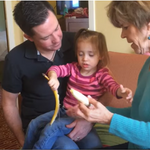
One evening, I found Feeding Matters online and placed a call that changed everything. Immediately, we found support and a partner in our journey. This one moment changed our whole family’s journey, but most importantly gave us hope to keep fighting.

Fast forward to one year ago today when we successfully removed Lucy’s G-Tube. Lucy was eating enough to not need it any longer. She is healthy and happy and now, healthy and happy without her tube. She plays goalie for competition soccer, is mastering piano, and being a big sister to Alice and Ivy, or according to her… “my 8 year old twins”.
It takes a village, and we are in gratitude for Feeding Matters and the hope, encouragement, and support we received. It was a tough journey, and without that support, we do not know how we could have done it. As you sit down with your family to eat this holiday season remember all the children who can’t and all the families struggling to find hope in their feeding journey.
For families just beginning on the long journey of PFD, please know that support is out there. Because of the generous donors and community supporters, Feeding Matters can help.
Every child is unique and different. Feeding Matters understands this, and through the Power of Two program can pair you with a mentor that is best suited for you.
We are grateful for the staff and Goldwater family. Their commitment to assure PFD is understood, supported, and recognized. We are excited for the future and are in deep appreciation. Life has done a complete turn for us, as Lucy is able to enjoy an oral meal every day with us as a family at the table. If you would like to see her journey, feel free to watch Feeding Matter’s Lucy update video by clicking here.
Whether you are a donor, community supporter, family, or professional. I thank you on behalf of all parents just like me.
In gratitude,
Garrett Barnes
A note from our event sponsor: Jaburg & Wilk
Published by Jaburg & Wilk on Nov 08, 2022
Feeding Matters is grateful to Jaburg & Wilk for their sponsorship of the 2022 Virtual Community Event! Learn more about why Jaburg & Wilk supports Feeding Matters.
The Jaburg & Wilk Foundation began supporting Feeding Matters in 2008. We were surprised by the number of children that were impacted by pediatric feeding disorder (PFD), especially children that were on the autism spectrum. The stories that we heard about long-term and on-going PFD struggles that both parents and children faced were heart-breaking as well as the developmental delays that these children faced. We have followed the growth of Feeding Matters from being primarily an outreach support network for parents to an international organization focusing on education, advocacy, treatment, and research. It has been an incredible journey. While we focus on Feeding Matter’s Arizona efforts, we are encouraged by the continuing partnership of SARRC and Feeding Matters. As with autism, the earlier the diagnosis of PFD, the better the potential outcomes can be.
The awareness of PFD at Jaburg Wilk has empowered us to connect our employees and clients, quickly, with Feeding Matters if there is a problem or potential PFD problem. That awareness has encouraged parents of preemies or multiples to watch closely for signs of feeding challenges. The quick response from Feeding Matters has been gratifying and part of the reason for our continuing support of Feeding Matters.
Giving Yourself Grace
Published by Jaclyn Pederson, MHI on Aug 22, 2022
Back to school season – a time of change, stress, anxiety, excitement, and so much more. I’m a mom to an almost three-year-old son with another son on the way and for our family, this back-to-school season brought its own unique challenges. We switched up routines. We had big emotions. We stepped outside our comfort zones. We said goodbye to the familiar without being sure of the next step. We got to know new people and places. And it was tough.
We also lost sight of the grace that we needed to give ourselves during this time of change. I know there are others out there struggling with the same stressors so I thought I would share a few things that have helped my family and the Feeding Matters team during this season.
- Acknowledging our reality. Change is tough and that is ok!
- Not trying to force anything too hard, giving ourselves breaks and the space to adjust made a huge difference.
- Knowing that “success” for us may look different than we originally expected.
This grace made all the difference in the world, and it also stood as a great reminder of everything we are asking of children with pediatric feeding disorder (PFD). Having PFD is a long journey with various seasons of change and with it comes many emotions. And especially now, at the start of a school year, our kiddos with PFD may be faced with additional stress as feeding routines change. In many classrooms, there is a child who is struggling with this whether their PFD has been diagnosed or not. So during this back-to-school time of change, I encourage you to give yourself some grace and be thinking about others who need it as well.
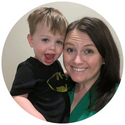
Best,
Jaclyn Pederson, MHI
Chief Executive Officer
Symposium Q&A
Published by Feeding Matters on Jun 03, 2022
At the 2022 Feeding Matters Annual PFD Alliance Symposium: Stepping into a Brighter Future, a session of the 9th Annual International Pediatric Feeding Disorder Conference, Feeding Matters PFD Alliance Pillar Leaders reflected on past achievements while examining tools and resources available for building a brighter future for children with PFD. Please enjoy this series of Question-and-Answers from our Pillar Chairs.
Now that we have a general PFD Toolkit, how else could we leverage this content? If we create a stakeholder specific toolkit, who should we target and how do you see this content being shared?
Access to meaningful information regarding PFD is a key initiative for Feeding Matters. Our goal is to continue providing free resources to the PFD community that promotes awareness, identification, and intervention strategies for both families and providers. Like the PFD name and diagnostic criteria, broad dissemination of this material can help to create a common language about PFD for improved care.
To grow awareness within our PFD community, we need to leverage our current content and develop new content. Our first action is to share links, handouts, and other resources, to our team members and to the families we serve, to encourage consistent messaging. Remember to share links to the FM website, PFD Toolkit and PFD Alliance app! Spreading the word to our larger medical and intervention communities can help identify red flags in children who have not been identified! Next, we can add new content. Is there a new toolkit you would like to see? Are there specific diagnoses or topics that you find yourself explaining repeatedly to other providers or families? Are there teaching materials that would assist you in explaining PFD and intervention to others? What about a child-friendly version of the Toolkit for for siblings or other family members of children with PFD?
Finally, we need to grow awareness outside our PFD community to families not yet identified with PFD. Most caregivers are unaware that children shouldn’t struggle when learning to eat, yet they are the first people to recognize a feeding problem in a child. To decide when their child is struggling more than expected, caregivers ask other caregivers and search the web and social media. All of this occurs before they talk with their primary care provider! Getting information about PFD out to where caregivers search for meaningful information about typical feeding could have a huge impact on awareness and early referral and identification! Do we need a specific toolkit aimed at caregivers without a child with PFD? What should be included? What other ideas do you have?
We would love to hear from you! Please share your feedback by emailing programs@feedingmatters.org so we can work together to make PFD a household name!
Amy L. Delaney, PhD, CCC-SLP, Education Pillar Chair
Feeding Matters has made excellent progress in bringing together a community of diverse stakeholders. As Family Support Pillar Chair, who else needs a seat at the collaboration table? What is a good first step in this outreach campaign?
Feeding Matters takes a unique approach to caring for children with PFD, incorporating the family voice and the healthcare professional voice. I can personally attest, through years of working with healthcare providers and caring for my two children with PFD, that having both voices present has been essential for an achievable and impactful plan of care for my kids, and our entire family. There are two additional voices I believe would add significant value at the Collaboration Table.
First, are Elected Representatives at the local, state, and federal levels. Bringing these people to the Collaboration Table will broaden awareness of PFD. Once our Elected Representatives are aware, they can help drive awareness through enacting and supporting activities such as PFD Awareness Month. Additionally, Elected Representatives can enact legislation, and drive related efforts, that support care for children with PFD. An example of this is where the State of Arizona passed laws requiring insurance companies to cover elemental formulas for certain medical situations.
Second, are School Healthcare Staff. This could include, but not be limited to, nurses, councilors, physiologist, Occupational Therapists, and 504 Plan / IEP Plan coordinators. Adding School Healthcare Staff to the Collaboration Table will help them better understand and support the unique needs of the growing number of kids with PFD. School Healthcare Staffs’ feedback at the Collaboration Table would also help families and healthcare professional understand the situations that occur in a school setting, which may not fully be understood because many of us are not in that school setting.
A first step to involving both groups could be creation of a short, couple minute video explaining PFD, sharing a real story or two from families struggling with PFD, and providing recipients next steps to take in support of children with PFD. This should be sent directly to targeted representatives and school healthcare providers in addition to share via social media to these groups.
Brandt Perry, Family Advisory Council Chair
What can professionals and families do to advocate and increase awareness of PFD in their communities? How can families and providers come together in their efforts?
I am the mother of three adult children (and proud grandmother to two grandchildren.) One of my children had/has special needs (he just turned 30!), and I partnered with many special education teams over the years. I was honored to have worked for 6 years on the Colorado Special Education Advisory Committee. I think my passion for advocacy began when I realized families were not always valued in this process. Of course, this was decades ago – and I do see some improvements. I have been a part of Feeding Matters since the first meeting and have watched it develop into this amazing organization. An organization that continues to bring families and professionals together to improve services for children with PFD.
Families bring the most powerful voices to advocacy, and parents and professionals can partner to raise awareness of PFD. Feeding Matters is working to get a PFD Awareness month in every state and territory. We have a resource on our website (https://www.feedingmatters.org/awareness/) that explains the process for getting PFD awareness month recognized in your state. Professionals can ask families to add their voice to any effort and lead the way towards establishing this month. Alternatively, parents can bring this resource to their feeding team to partner with professionals.
We are still working to raise awareness in support of children with PFD, and their families. Another way families can influence this effort is to share their story – with your representatives in government, with your team, and with Feeding Matters. Click here to submit your story!
We have a powerful voice – a choir – when we raise it together. The keynote speaker of this year’s International PFD Conference (Dr Scott Berns) was not only inspiring, but he also gave us a roadmap for how to move our mission forward. One thing that I took away from his talk is that it takes all of us. And people we may not even think of. Parents, Professionals, Children (yes – our older children can be powerful advocates!) – we may be the core. But we also need to consider how to partner with other organizations who serve children with special health care needs. We need to collaborate with industry (we had a wonderful talk this year of a partnership between Gerber and a University, looking at texture sensitivities in children with Trisomy 21) and insurance companies. We need to partner with government representatives. You may not feel you have a voice by yourself but think of all the people you know. In all these different areas. Together, we can raise awareness of PFD in the communities where we live. And Feeding Matters is here to help – with resources and to make connections. Remember to download the app!
Erin Ross, PHD, CCC-SLP, Advocacy Pillar Chair
How can providers and families find ways to participate in research? Where is the best place for a person unfamiliar with research start?
Greetings from the Research Pillar! Great questions. I encourage anyone interested in PFD research first download the PFD Alliance App. The App has groups connecting people with aligned interests, such as family support, research, and a shared group where professionals and families share space. Join the Research Projects Group. There you will find PFD Alliance members looking for connections in research, whether it is current studies looking for participants, clinicians/providers or researchers networking with one another, or families suggesting research topics.
I would also check out your local universities to see if they have Occupational Therapy, Speech Language Pathology, or Nutrition programs. You can look at faculty profiles to see what their interest areas are. I have often had clinicians reach out to me at St. Catherine University looking for a faculty to partner with in a study. This is also a good resource for families if you would like to find the full article for a research study.
There also are many organizations with research registries or who may provide open access to published studies. Here are a few: Oley Foundation , SPARK, FARE.
Researchers often recruit for studies using Research Match. It would be fantastic if individuals with PFD were represented in that database as well. Additionally, if you participate in research for any reason, please advocate for utilization and tracking of PFD as a diagnosis, as well as ARFID where it applies.
If you are new to research, searching the internet can be extremely overwhelming. One tip is to make sure the websites or organizations have a .org, .gov, .edu or other reputable web address. For example, the American Speech, Language, and Hearing Association (www.asha.org) and the American Occupational Therapy Association (www.aota.org) are good options for resources on how to integrate research into your area of practice.
Paula Rabaey, PHD, OTR/L, Research Pillar Chair Elect and Hayley Estrem, PhD, RN, Research Pillar Chair